 Jenewa, 26 Rajab 1434/5 Juni 2013 (MINA) – The United Nations High Commissioner for Refugees (UNHCR) warned on Friday (31/4) that the number of Syrians who have fled their own land to seek refuge in other states is growing very fast in the face of intensifying conflict in Syria.
Jenewa, 26 Rajab 1434/5 Juni 2013 (MINA) – The United Nations High Commissioner for Refugees (UNHCR) warned on Friday (31/4) that the number of Syrians who have fled their own land to seek refuge in other states is growing very fast in the face of intensifying conflict in Syria.
“UNHCR was able to witness the dire humanitarian situation of these displaced families,” agency spokesman Dan Mc Norton said in Geneva. “Due to the poor sanitation and hygiene conditions in which people were living, many, especially children, were suffering from diarrhea, respiratory problems, high fevers, ear infections and skin diseases,”.
The spokesman said that more than 100,000 refugees crossed the Syrian border just in the last 15 days. On May 19, the UN warned that the number of Syrian refugees could double and reach three million people by the end of this year if the unrest does not end.
UN figures also show that more than four million Syrians have been internally displaced since the beginning of the unrest in the Arab country more than two years ago, Ahlul Bayt News Agency (ABNA) reported, quoted by Mi’raj News Agency (MINA).
Baca Juga: Anak Diaspora Berpakaian Adat Bugis Sambut Presiden Prabowo di Brasil
UNHCR says it has registered close to 1 million refugees since the start of 2013 alone, which amounts to about 250,000 people each month.
Syria has been experiencing unrest since March 2011, and many people, including large numbers of Syrian troops and security personnel, have been killed in the violence.
Several international human rights organizations have accused militants fighting against the government of President Bashar al-Assad of committing war crimes.
The Syrian civil war is an ongoing armed conflict in Syria between forces loyal to the Syrian Ba’ath Party government and those seeking to oust it. The conflict began on 15 March 2011, with popular demonstrations that grew nationwide by April 2011.
Baca Juga: Trump Umumkan Akan Ada Laga UFC di Halaman Gedung Putih
These demonstrations were part of the wider Middle Eastern protest movement known as the Arab Spring. Protesters demanded the resignation of President Bashar al-Assad, whose family has held the presidency in Syria since 1971, as well as the end of Ba’ath Party rule.
In April 2011, the Syrian Army was deployed to quell the uprising, and soldiers fired on demonstrators across the country. After months of military sieges, the protests evolved into an armed rebellion. Opposition forces, mainly composed of defected soldiers and civilian volunteers, became increasingly armed and organized as they unified into larger groups. However, the rebels remained fractured, without organized leadership. The Syrian government characterizes the insurgency as an uprising of “armed terrorist groups and foreign mercenaries”.
The conflict has no clear fronts, with clashes taking place in many towns and cities across the country. The Arab League, United States, European Union, and other countries condemned the use of violence against the protesters. The Arab League suspended Syria’s membership because of the government’s response to the crisis, but granted the Syrian National Coalition Syria’s seat on 6 March 2013.
Until late 2011 the armed conflict had not reached the biggest cities of Damascus and Aleppo. Late 2012 marked growing influence of the Islamist group Jabhat al-Nusra within the opposition forces, while Hezbollah entered the war in support of the Syrian army. The regime is further upheld by support from Russia and Iran. Qatar was an early funder of weapons for the opposition forces.
Baca Juga: Trump Akui Tak Ada Kemajuan Usai Bicara dengan Putin soal Ukraina
In mid-2012 full-scaled urban battle began in Damascus, followed by the even more deadly battle of Aleppo. On 15 July 2012, the International Committee of the Red Cross assessed the Syrian conflict as a “non-international armed conflict” (the ICRC’s legal term for civil war), thus applying international humanitarian law under the Geneva Conventions to Syria.
The war degenerated into a stalemate in early 2013, with both sides making limited advances in different places. According to the UN, the conflict was becoming “overtly sectarian in nature”, though both the opposition forces and the Syrian government deny that sectarianism plays any key role in the conflict.
On 2 January 2013, the United Nations released an estimate that the war’s death toll had exceeded 60,000; by 15 May, this figure was updated to 80,000. According to various opposition activist groups, between 72,960 and 96,430 people have been killed, of which about half were civilians, but also including 58,500 armed combatants consisting of both the Syrian Army and rebel forces, up to 1,000 opposition protesters and 1,000 government officials.
By October 2012, up to 28,000 people had been reported missing, including civilians forcibly abducted by government troops or security forces. According to the UN, about 4 million Syrians have been displaced within the country. To escape the violence, as many as 1.5 million Syrian refugees have fled to neighboring countries. In addition, tens of thousands of protesters have been imprisoned and there were reports of widespread torture and psychological terror in state prisons.
Baca Juga: Kandidat Wali Kota New York Zohran Mamdani Tolak Intimidasi Trump
International organizations have accused both government and opposition forces of severe human rights violations. However, human rights groups report that the majority of abuses have been committed by the Syrian government’s forces, and UN investigations have concluded that the government’s abuses are the greatest in both gravity and scale.(T/P013/P04)
Mi’raj News Agency (MINA)
Baca Juga: Menlu Kuba: Netanyahu Berbohong Soal Nuklir Iran Selama 30 Tahun










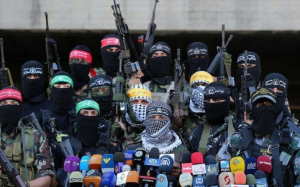
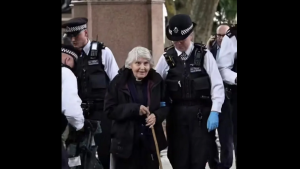
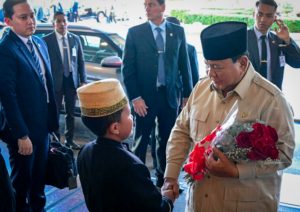
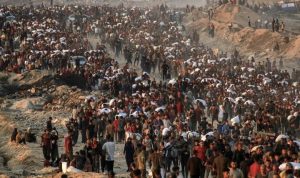
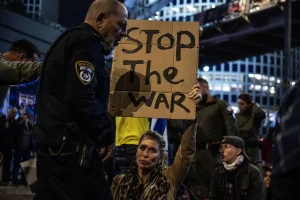
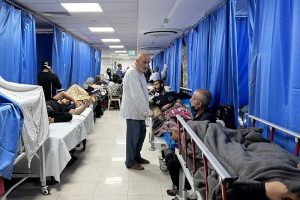
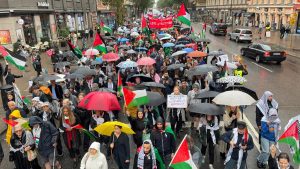




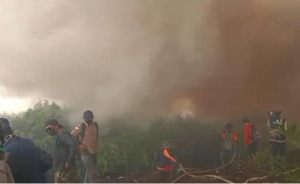
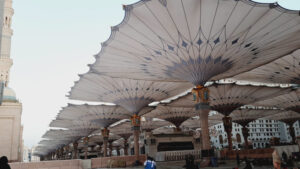
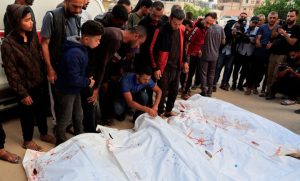





 Mina Indonesia
Mina Indonesia Mina Arabic
Mina Arabic Mina Preneur
Mina Preneur